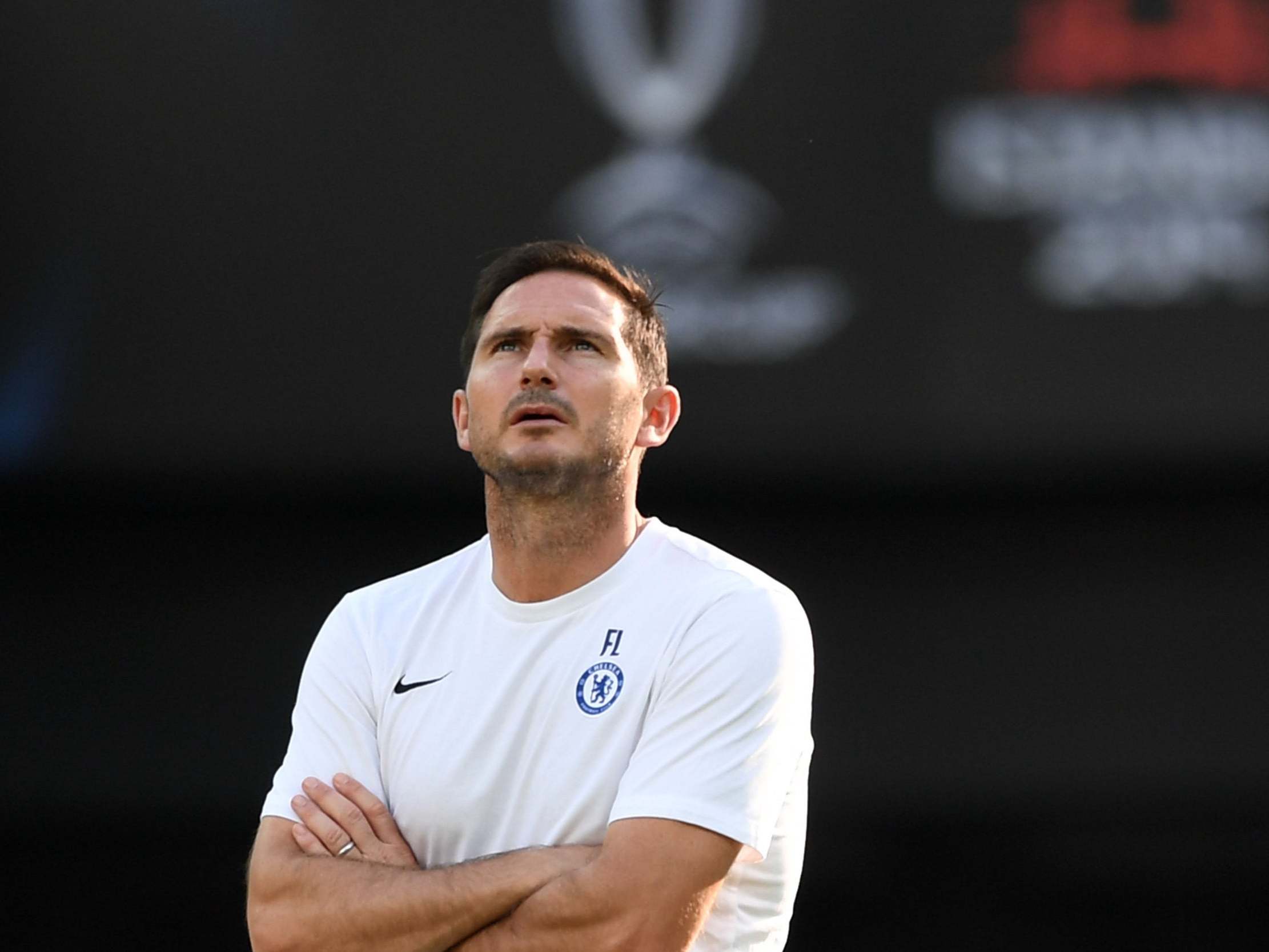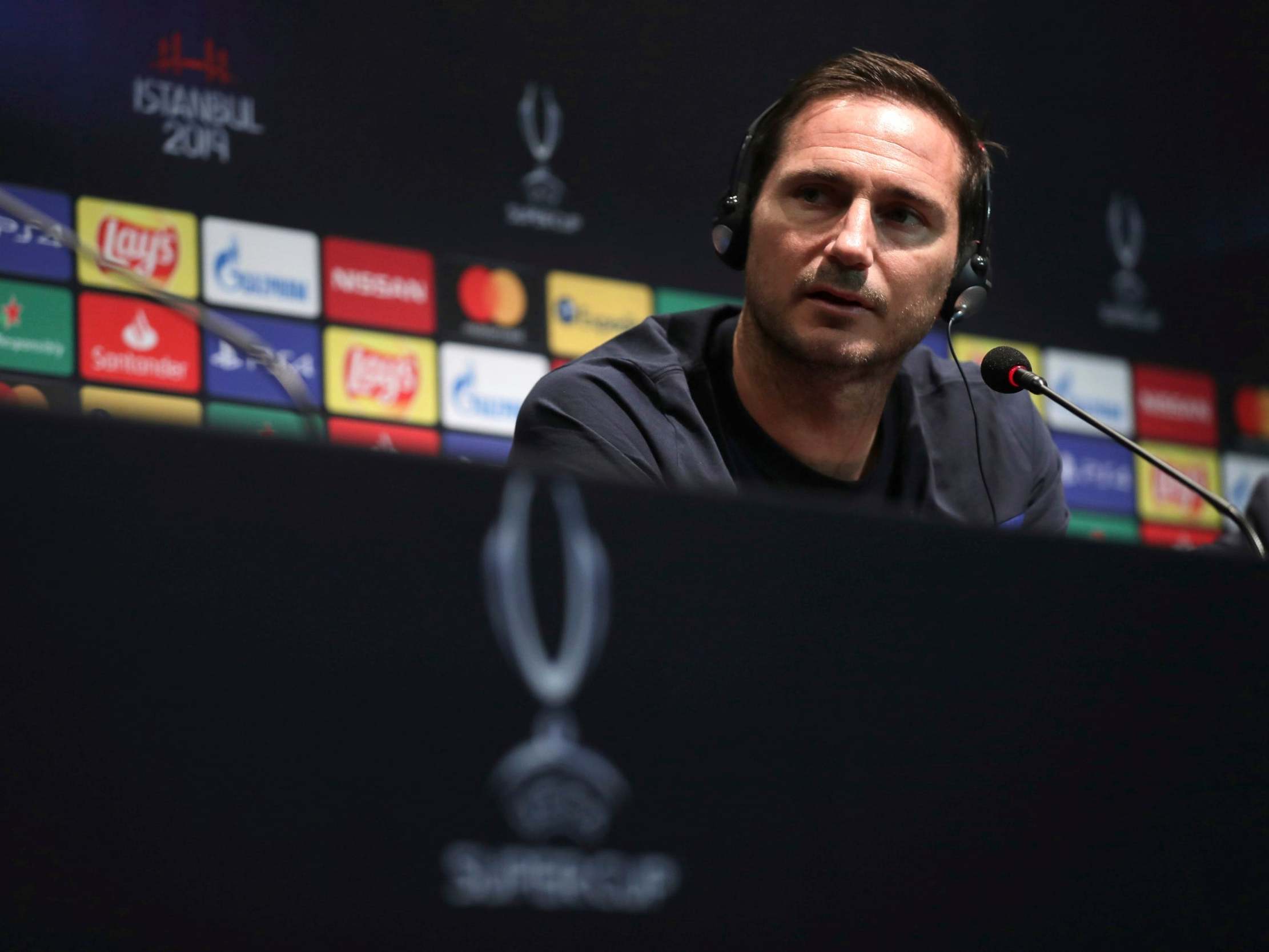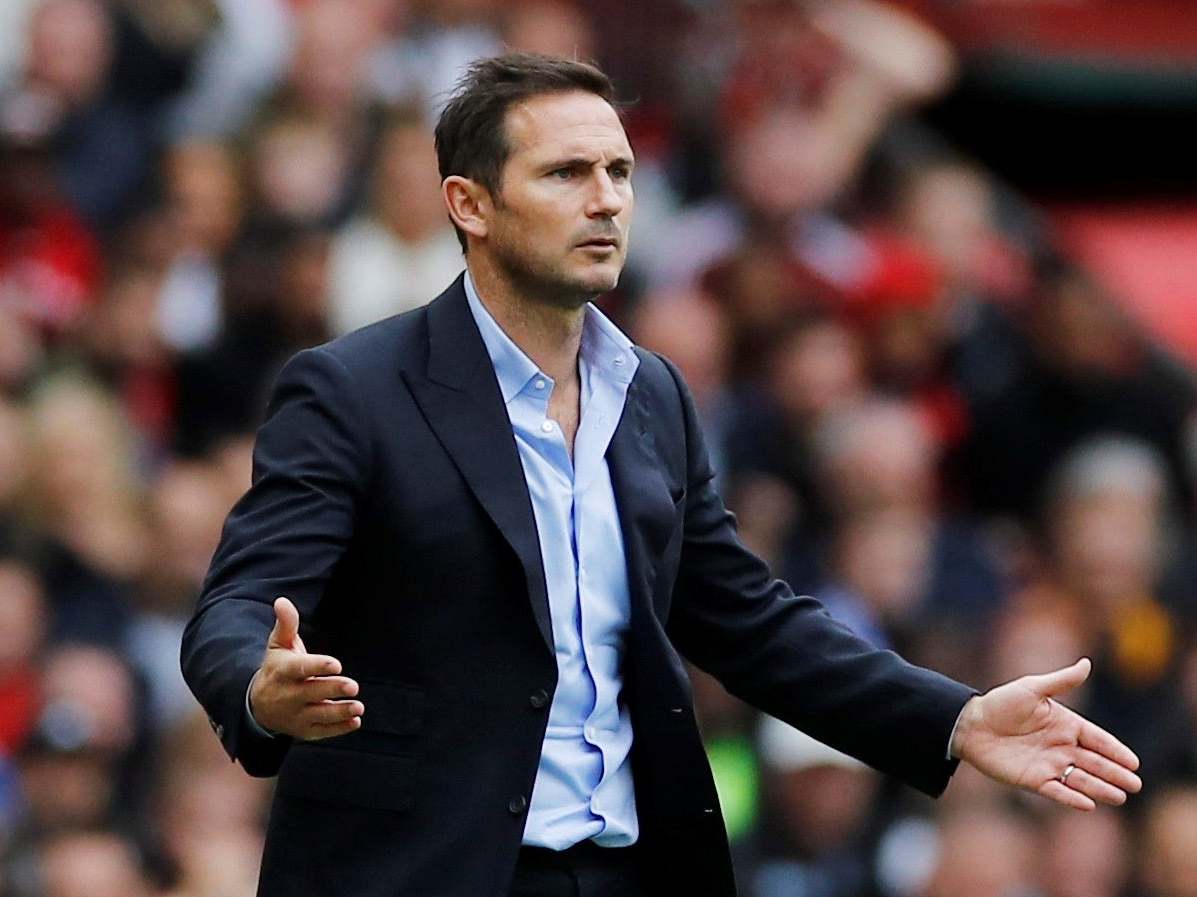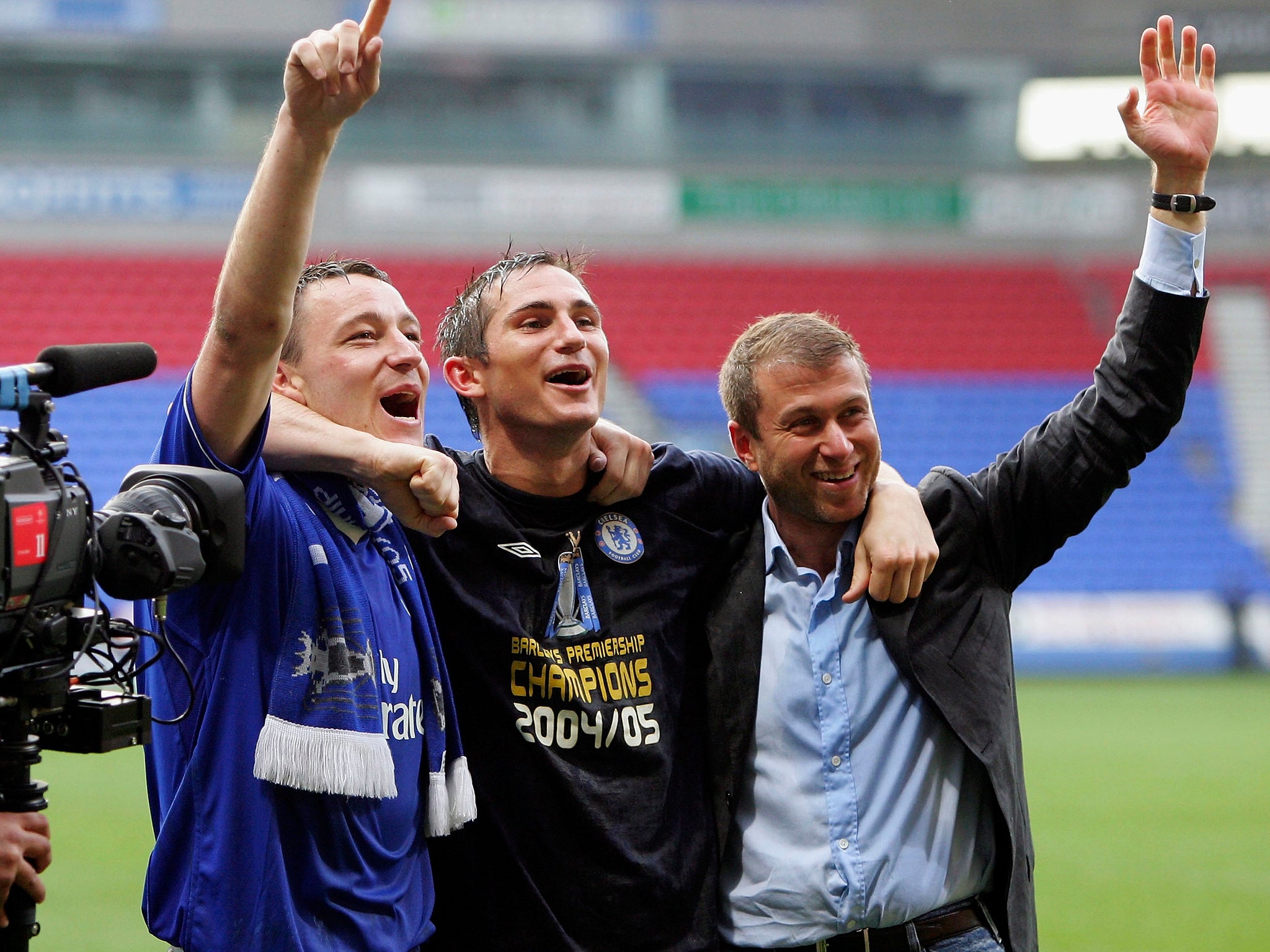Liverpool vs Chelsea Super Cup: Blues’ enforced new identity needs time and patience in stark contrast to the early Abramovich era
Chelsea owner was ruthless, aggressive and prepared to do whatever it took to win that rubbed off on Frank Lampard, but now their approach must change completely that shows how much the club has had to adapt

Back in the days when Roman Abramovich was around the Chelsea team almost every day, and that team were winning almost every trophy, he often sought out Frank Lampard for discussion about football. The two got on, and the Russian owner would usually ask about that team, and specifically how some of Lampard’s teammates were performing.
Except it soon became apparent these weren't so much discussions as directions, and not so much questions, as instructions.
Lampard would attempt to answer diplomatically, but give his boss a genuine footballer's insight as to where a teammate could improve a certain part of his game. “So why don’t you tell him?” Abramovich once said in response. Lampard admits in his autobiography ‘Totally Frank’ to being “taken aback by his directness”, and attempting to explain he’d say it to them during games but without much effect.
Abramovich’s response to that was just as blunt. “Well you have to make him understand.”
It is a mindset that Lampard is now trying to make Chelsea’s current players understand. The club legend is a very modern manager who certainly isn’t given to getting wastefully wistful about the past, but his very first day back at Cobham as new manager saw him deliver a “rousing speech” that asserted to everyone the standards he set his career by.
Those standards, directly derived from the owner’s approach to business, involve “ruthlessness”, “ambition” and “no room for failure”.
“There’s no option,” Lampard said.
And yet there’s similarly no option but to accept that Chelsea have to take a different route there, and one that just can’t be as demanding.
A club that ruthlessly conditioned a high quality team by brutally upgrading with every purchase now has to more patiently build from within. They can’t buy, so everyone has to buy time.
And as temporary as this transfer ban is, that doesn’t just represent a change in approach. It represents a profound change in club identity.
A club that Jose Mourinho insisted could never go through transition now has to go through a high transformation, of a significance that probably hasn’t yet sunk in. It might have a bit more impact this week, though, because of the identity of their opponents in the Super Cup.
Liverpool were the club Abramovich's best Chelsea were most intensely cast against, and that instigated the most questions about identity and philosophy.
Now, some residual bad feeling between the boardrooms over the Dominic Solanke deal aside, the Anfield club aren’t too bothered. Their players certainly aren’t too bothered, and the fans’ emotions about money, “authenticity” and “history” are now directed at Manchester City.
That marks some change, and one that shouldn’t be so easily overlooked.

It reflects this huge change in the club, and it is certainly a lot more difficult to get your head around the idea that the soft touch everyone saw at Manchester United on Sunday could be the same club that wowed football a mere 16 years ago. You only have to look at that comparison doing the rounds this week between the squad of today and the squad of the 2008 Champions League final.
You only have to remember the reactions at the time, particularly within Liverpool.
Steven Gerrard remembers just saying “f***” when Abramovich first bought Chelsea in 2003, and a whole lot more expletives when the club began to sign so many players.
They tried to sign the Liverpool legend, of course, at the same time as they were going to Arsenal and just offering bids for Thierry Henry that increased by £5m every time. The book ‘The Club’ reveals how vice-chairman Darren Dein eventually interjected when they got beyond the world record, and asked why Abramovich didn’t just buy Arsenal. He slammed his fist on the table on being informed they were mistakenly told a sale was impossible.
Chelsea did eventually prise one of Liverpool’s best players away in Fernando Torres in 2011, but that really only unleashed the worst of the acrimony between the two clubs. Supporters regarded it as the ultimate betrayal, with John Aldridge reflecting the fans' attitude with his inability to even repeat the striker’s name in commentary, merely referring to him as “the other fella”. Gerrard would speak in his own autobiography ‘My Story’ of how matches between the two - which he often felt the worst of - “could unleash dark and unsettling emotions”.

Former Liverpool chief executive Rick Parry meanwhile told Simon Hughes in the book ‘Ring of Fire’ that Eidur Gudjohnsen’s miss in the last minute of the 2004/05 Champions League semi-final second leg - that really caused the rivalry to rage - was “kind of a repayment for all of Chelsea’s evil over the years”.
Quite a statement, but then it was quite a feeling.
It has subsided. Chelsea don’t so much feel like they’re doing “evil” any more, but instead doing things "the right way" - even if it is not fully by choice. They are bringing through young players, and willing to give them and the manager time and space.
And yet it’s impossible not to link this to the fact Abramovich is spending so much less time around the club.
Compare the current situation to what Lampard has previously described.
“I’ve had one-to-one conversations with him and in those moments I have looked in his eyes and seen only unyielding determination. I can sense that his hunger for success will never be satisfied and I appreciate that. It’s how I am. Almost as soon as we won the first league title Roman asked me how we would win it again… He doesn’t miss a single thing. He wants everything to be just right. Not almost perfect. Perfect.”
Things at Chelsea are anything but perfect right now.

Lampard - by his own admission - barely talks to Abramovich at all now. There’s that extra buffer between them, represented by director Marina Granovskaia.
The questions over the oligarch's current levels of interest won’t go away, especially as he stays away. In this era where such aspects of ownership come under much greater scrutiny, there are similarly the theories that the main purpose of the entire purchase was to give him a high profile separate from Vladimir Putin, and politically insulate him.
For all that, it’s also true that the owner’s own moves to make Chelsea more self-sustainable in this era of Financial Fair Play were gradually going to lead to diminishing returns - and maybe the inevitable need for a “cultural reset”.
They couldn’t just keep going with their previous buying policy, especially given they were left with this squad, where the only player who would probably get into the Liverpool team - and the only one even close to world-class - is N’Golo Kante.
There’s also the reality that they did want to alter the role of the head coach, for the first time since the decrease of power of the position after Mourinho’s first departure in 2007. There’s similarly the fact that Abramovich is now closer to getting something he’s always wanted, which is an academy graduate establishing himself.

All of Ruben Loftus-Cheek, Callum Hudson-Odoi, Tammy Abraham, Mason Mount, Reece James and Fikayo Tomori now form a core of this squad in a way that was inconceivable only a few years ago.
They’re going to require patience, of a kind that was also inconceivable in the recent past.
And yet a grand irony is that, for all they used to utterly lord it over clubs like Liverpool when they were so successful, the Stamford Bridge support claim they are happier with this.
It reinforces the more local identity within this most cosmopolitan of clubs. It has a London-born club legend in charge.
This feeds into a wider change in the Premier League and football, where an identity that supporters can buy into has become as important as winning.
“Trust in Frank” is the message.
And yet it might take a bit more to make everyone really understand what that means.
Join our commenting forum
Join thought-provoking conversations, follow other Independent readers and see their replies
Comments